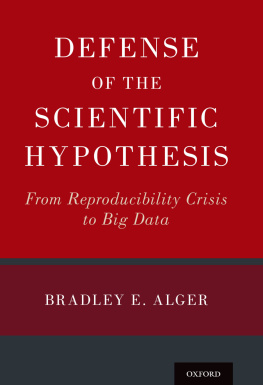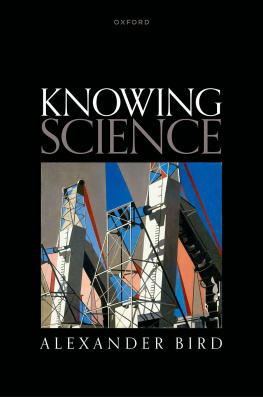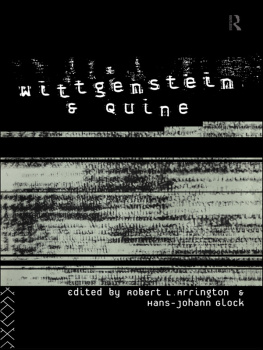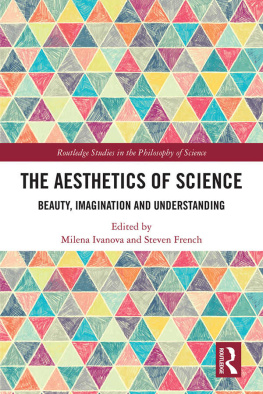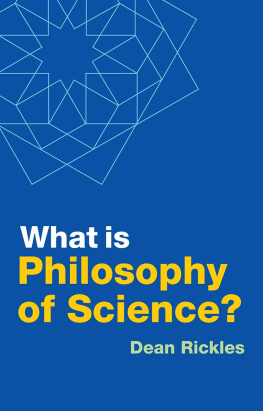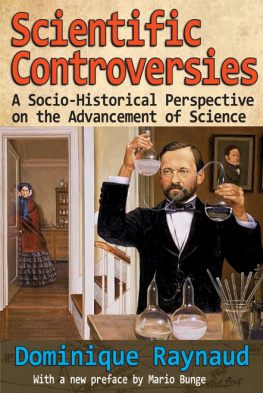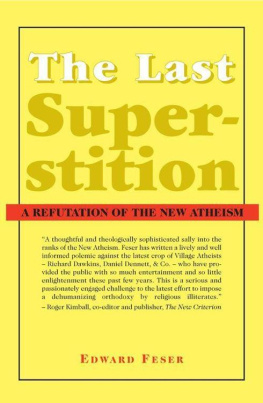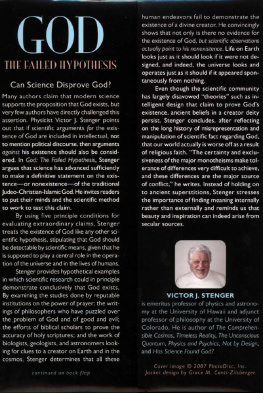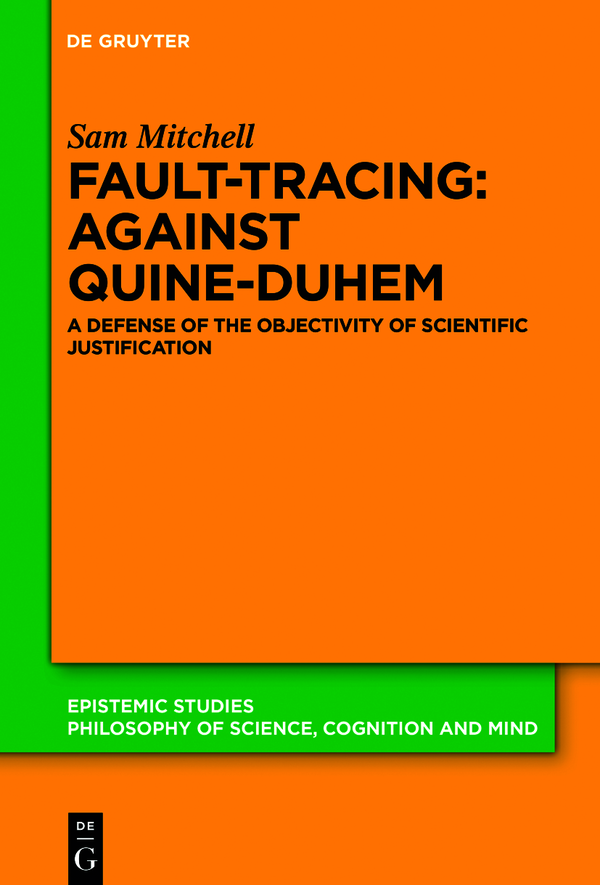Epistemic Studies
Philosophy of Science, Cognition and Mind
Edited by
Michael Esfeld
Stephan Hartmann
Albert Newen
Katalin Balog
Claus Beisbart
Craig Callender
Tim Crane
Katja Crone
Ophelia Deroy
Mauro Dorato
Alison Fernandes
Jens Harbecke
Vera Hoffmann-Kolss
Max Kistler
Beate Krickel
Anna Marmodoro
Alyssa Ney
Hans Rott
Wolfgang Spohn
Gottfried Vosgerau
Volume
ISBN 9783110684995
e-ISBN (PDF) 9783110685046
e-ISBN (EPUB) 9783110685091
Bibliographic information published by the Deutsche Nationalbibliothek
The Deutsche Nationalbibliothek lists this publication in the Deutsche Nationalbibliografie; detailed bibliographic data are available on the Internet at http://dnb.dnb.de.
2020 Walter de Gruyter GmbH, Berlin/Boston
Introduction
The Quine-Duhem hypothesis
To anyone even slightly acquainted with the history of philosophy since 1950, the view defended in this book must seem utterly untenable. It argues against the position on sciences that W. V. O. Quine, drawing upon the work of Pierre Duhem, so decisively championed in the mid-twentieth century. The upshot of the debate was a decisive victory for the Quine-Duhem hypothesis the view that no matter what outcomes we have observed at any time, thepractice of science cannot use only those outcomes to select whether to give up or to adopt some given hypothesis. We may believe in spite of an apparent refutation, by blaming some other hypothesis instead. By contrast, this book argues that the outcomes of observation sometimes do not permit us any choice in deciding which hypotheses are at fault when we observe something that our former beliefs prohibited.
An academic book should be an attempt to make a move in the way we now think about some subject. It must begin with the position in that subject as it is widely perceived at present before it attempts to move forward. This book, then, is aimed at a readership that is familiar with views on confirmation in the philosophy of science.
I do not want to go back to the battles of the 1950s and 1960s. The literature is unmanageably massive and framed in ways that are now dated. Revisiting it will not change anyones mind. That literature is almost exclusively concerned with Quines first dogma the analytic/synthetic distinction. That focus continues even up to the present day ().
This book, by contrast, looks closely at Quines second dogma, namely that hypotheses of a scientific theory face observations not individually, but only as a collective group. This hypothesis has been much more widely seen as true and has had a huge influence (although Clark Glymour did politely demure to some extent (1980)). In the sense in which it is true, I will argue, the Quine-Duhem hypothesis does not follow from it. It has, moreover, had pernicious effects. It has yielded a poor analysis of justification as it occurs within natural science.
What is the argument for Quine-Duhem? The second dogma says that we may compensate for the future outcomes of observation, not by altering our view of the justification for that given hypothesis, but rather by adapting our view on the justification of other hypotheses we believe.
Quine then presented a dilemma:
Either empirical justifications depend upon auxiliaries, which must in turn be justified, to give a circle or endless sequence, or not.
If empirical justifications do ramify endlessly, or cycle, then the Quine-Duhem hypothesis is true.
If they dont, then some version of foundationalism is true.
Foundationalism is hopeless.
So the Quine-Duhem hypothesis is true.
This book shows that 3 is false. The chains of justification for a succession of auxiliaries can come to an end, in a finite time, without precipitating us into any version of foundationalism. Observation can be as theory-laden as you like. We can keep the examples of shifting blame to auxiliaries that we find in the history of science or our own reasoning. Empirical results are indeed widely interconnected; observations of X-ray diffraction do have consequences for hypotheses about the lift generated by the wing of a bird. The sense-data theory of perception can be utterly hopeless. We can be as anti-reductionist as we like. We can gain the advances for which Quine argued the rejection of foundationalism and the sensitivity to auxiliary hypotheses without surrendering to the pragmatist view of science that he so vividly presented in the last section of Two Dogmas of Empiricism ( (1980)). We can successfully practice and reason about the science we in fact possess without the Quine-Duhem hypothesis. We can be empiricists. That is the view that seems utterly untenable but which this book defends.
I call this alternative to the Quine-Duhem hypothesis constructivism because there is a clear intuitive sense in which the justification for a hypothesis is constructed from outcomes of observation. In nearly every case, a justification uses auxiliary hypotheses, and these must be confirmed independently of the target hypothesis. The process must terminate in hypotheses that are justified from the outcomes of observation without using additional auxiliaries. The word constructive is intended to be analogous to a constructive proof in logic or mathematics. Constructivism in the philosophy of science has close connections to intuitionism in the philosophy of mathematics (). The clearest descriptive title for the view would be empiricist constructivism, but that is much too close to van Fraassens constructive empiricism (1980, 1989). Unlike constructive empiricism, constructivism holds that hypotheses concerning unobservable entities are justified by the outcomes of observation in the same way as hypotheses concerning observable entities.
, 43) wrote:
Any statement can be held true come what may, if we make drastic enough adjustments elsewhere in the system.
This is the Quine-Duhem hypothesis. The view occurs elsewhere. Two influential statements of it are:
The physicist can never subject an isolated hypothesis to experimental test, but only a whole group of hypotheses; when the experiment is in disagreement with his predictions, what he learns is that at least one of the hypotheses is unacceptable but the experiment does not designate which one should be changed.
(, 187, see also 185)
In principle, it would always be possible to retain [a hypothesis] even in the face of seriously adverse test results providing we are willing to make sufficiently radical and perhaps burdensome revisions among our auxiliary hypotheses.
(Hempel 1964, 28).
This viewpoint has been endlessly repeated up until the present day, like an incantation in a dead tongue. What follows is a sample, which I do not claim to be exhaustive: , 36), but we keep believing it, or saying that we do.
The Quine-Duhem hypothesis is important for the broader topic of epistemology, not just for the philosophy of science. Still, it is important that it should be answered from within the philosophy of natural science. That is where the argument was first proposed and argued. Duhem was a philosopher of science, and made his case from within that discipline. Quine was explicitly thinking in terms of natural science. Besides providing the arguments that first supported the Quine-Duhem hypothesis, natural science ought to play a particularly influential role in epistemology more generally. It provides a rich store of detailed and explicit examples of


